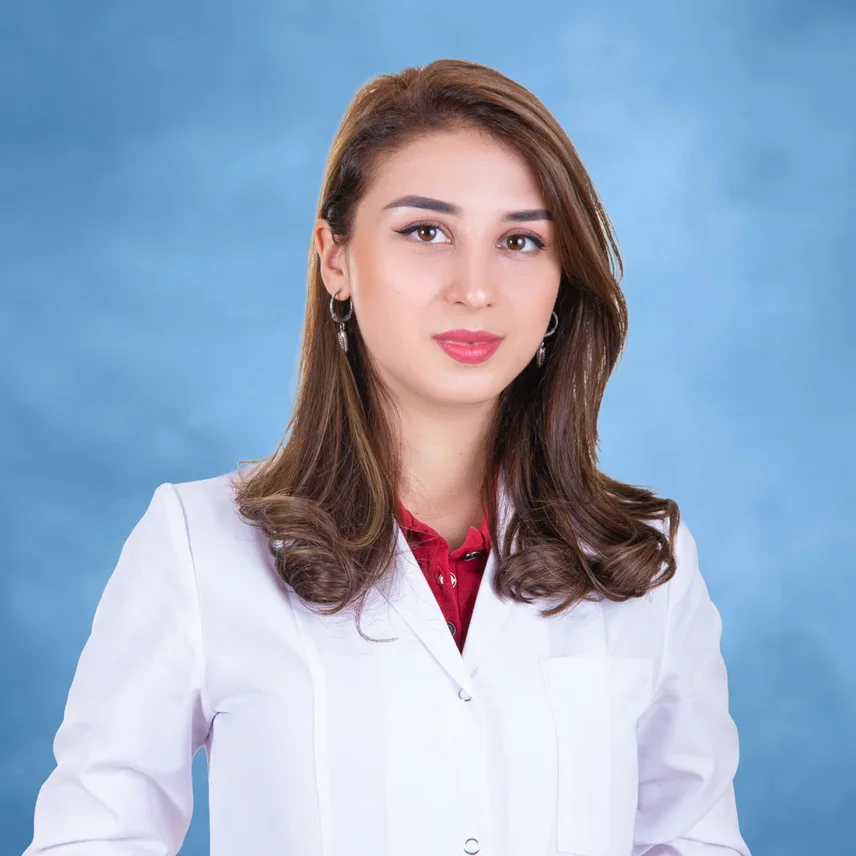

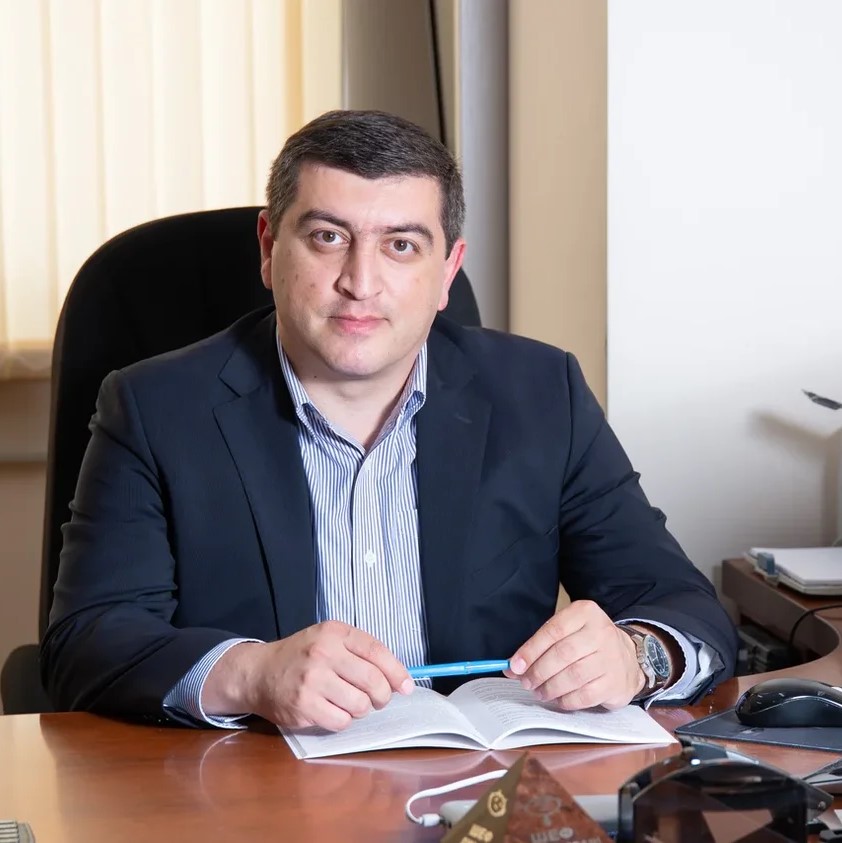

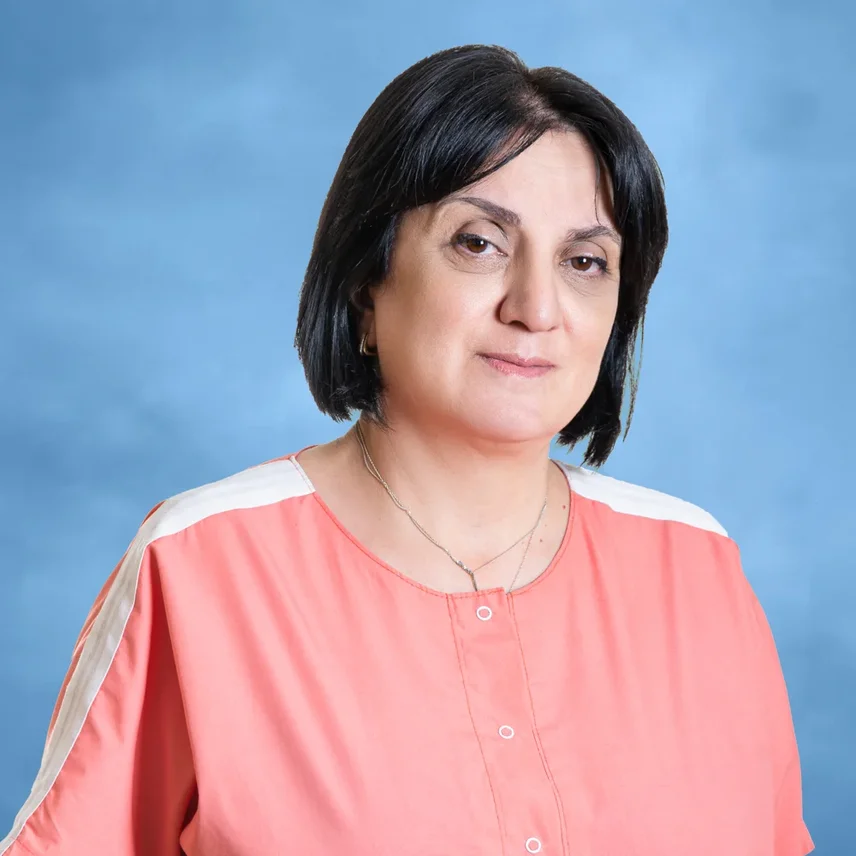

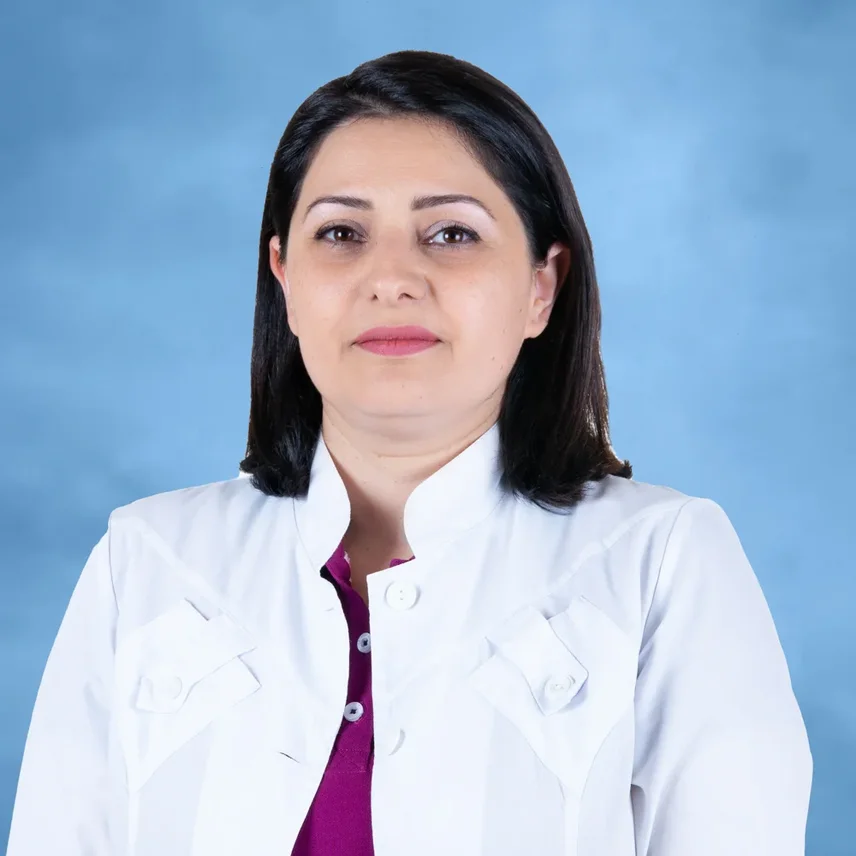
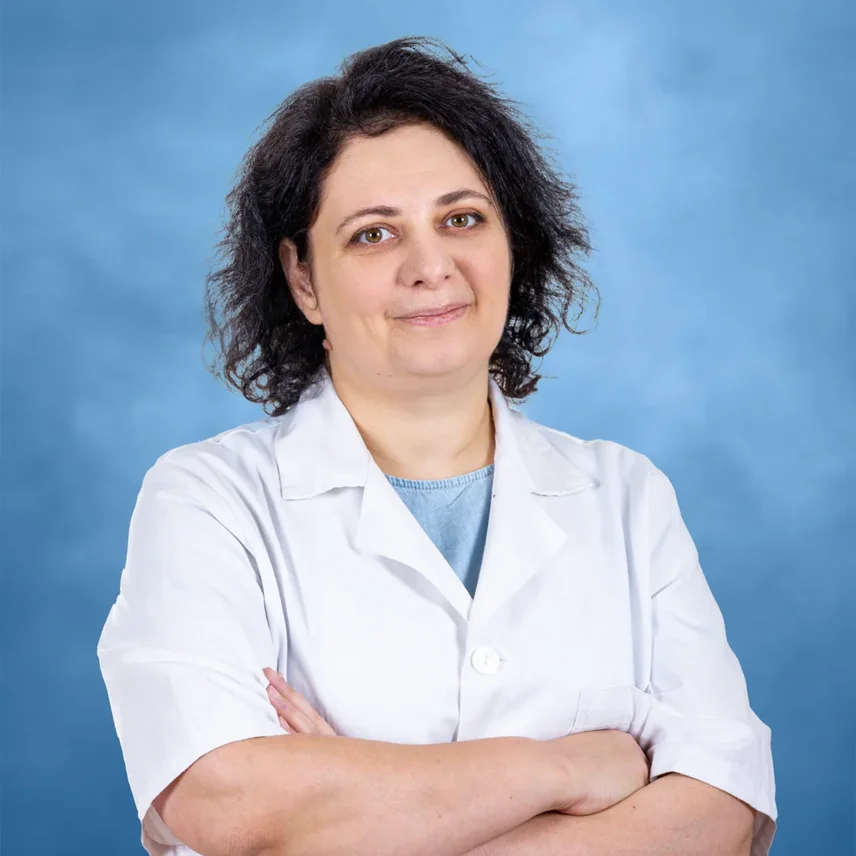
Nelly Mosesova
Neonatal Hearing Screening Program Coordinator/ Team Leader
Doctor-audiologist
Date of birth and Citizenship:
1974, Armenian
EDUCATION
2007-2008 National Institute of Health, Yerevan, Armenia, Department of Audiology, Major: Doctor-Audiologist
1997-2000 National Institute of Health, Yerevan, Armenia, Department of Ray Diagnostic, Major: Doctor-Radiologist
1991-1997 Yerevan State Medical University, Department of Therapy, Major: General Practitioner
COURSES ATTENDED ABROAD
2017 OMI ENT Observership/ Vienna, Austria
2014 The Oticon East European Seminar/ Athens, Greece
2013 Two weeks training in Zurich Children Hospital/ Zurich, Switzerland
2011 ''Otolaryngology'' Salzburg Weill Cornell seminar/ Salzburg, Austria
2008 Three weeks practice in Zurich Children Hospital/ Zurich, Switzerland
2008 The Oticon East European Seminar/ Kiev, Ukraine
PROFESSIONAL EXPERIENCE
2007-present “ARABKIR” Joint Medical Centre, Yerevan, Armenia, Position: Consultant, Audiologist, Neonatal Hearing Screening Program Coordinator/ Team Leader
2017-present Starkey Hearing Foundation, Aftercare Service, Position: Consultant
2007-present ''HAVAT'' Hard Hearing Children՚s Mothers՚ NGO, Position: Board member
1995-1996 Mikaelyan Institute of Surgery, Yerevan, Armenia, Reanimation Department, Position: Nurse
PROFESSIONAL ACTIVITIES
2020 „Technical assistance to the Ministry of Health and Medical Industry to support establishment of the system of universal early detection of congenital hearing impairment with effective rehabilitation and support among 0-6 years old children “,UNICEF Turkmenistan / Consult
2019-2020 Ear and Hearing Care National Plan / Member of Technical Working Group
2007-2008 Development and implementation of Newborn Hearing Screening Program in Armenia
PUBLICATION LIST
1. Mosesova N. Prevalence of perinatal risk factors for hearing loss in Armenia. Collection of Materials of VIII national Scientific-and-medical Congress “Human’s Health”:308-311(2009)
2. Sarkisyan A., Gevorgyan H., Mosesova N.,. Clinical and statistical analysis of primary visitation in audiological centre of “Arabkir” MC in 2008. Issues in theoretical and clinical medicine. Journal of scientific and practical medicine. 12 N2(54):49-52 (2009).
3. Sarkisyan A., Mosesova N., Gevorgyan H. Neonatal audiological screening in Armenia. First steps. Medical science and education. Scientific and informational journal. December N4: 87-90 (2009).
4. Martirosyan A., Harutyunyan I., Shukuryan A., Mosesova N. The diagnosis of hearing loss in early childhood and the preparation for cochlear implantation operation. Medical science and education. Scientific and informational journal. December N4: 87-90 (2009).
LANGUAGES
Armenian, Russian, English
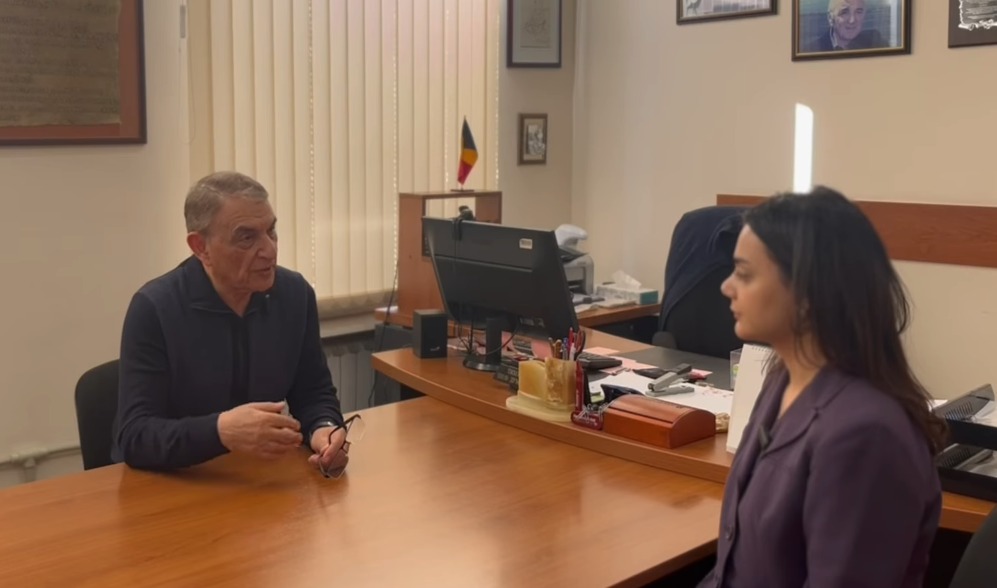

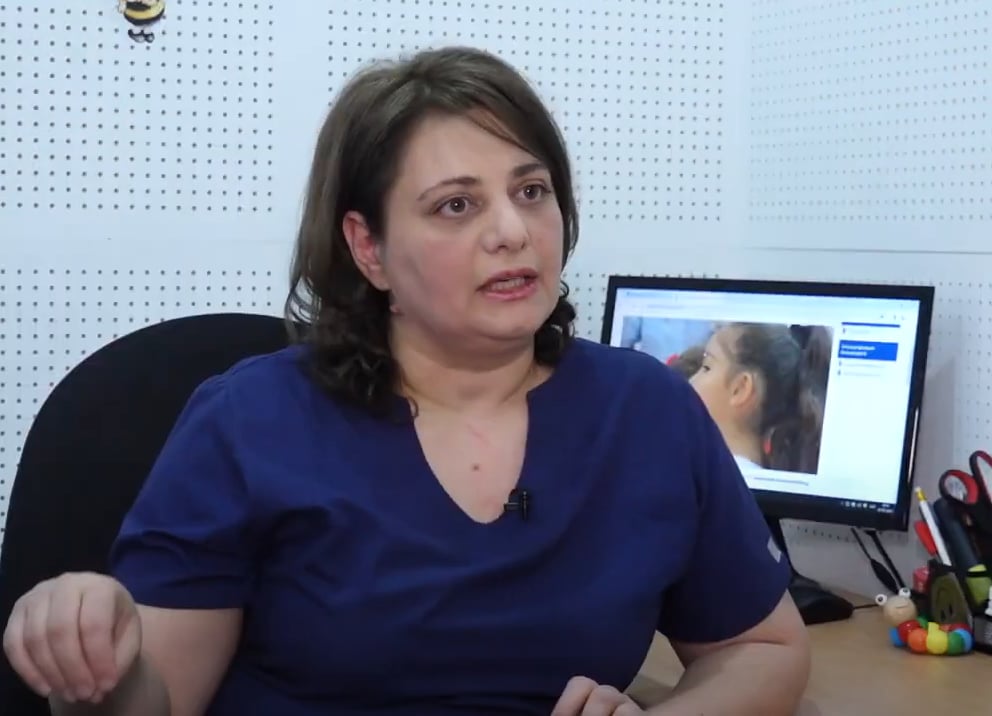
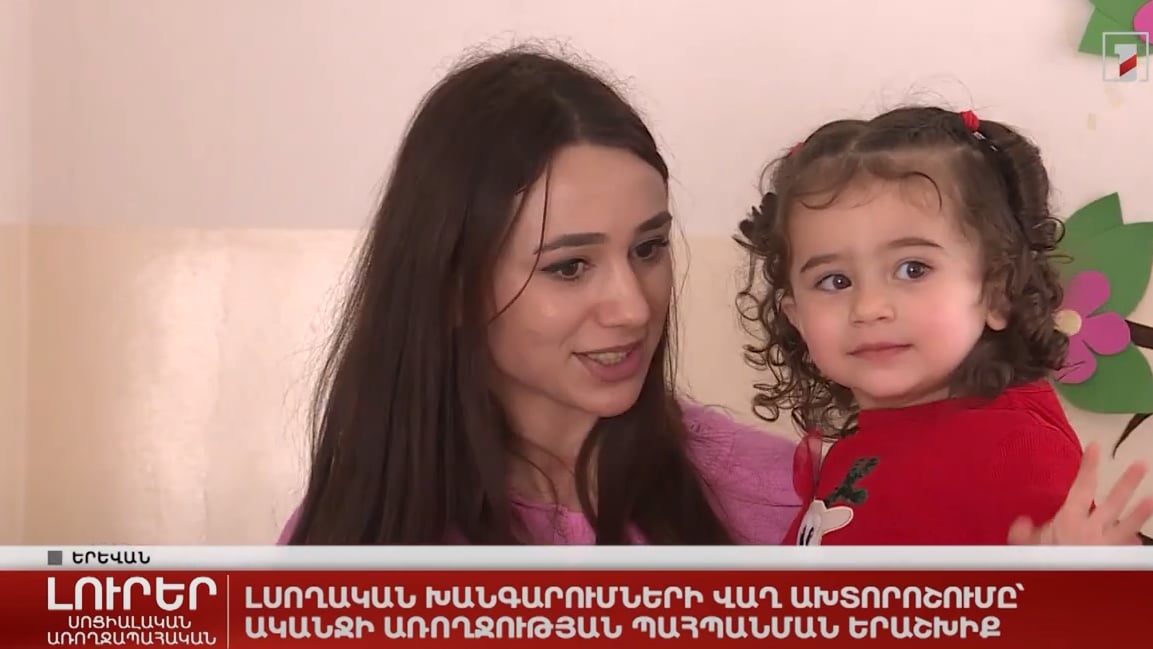

 English
English
 Հայերեն
Հայերեն Русский
Русский